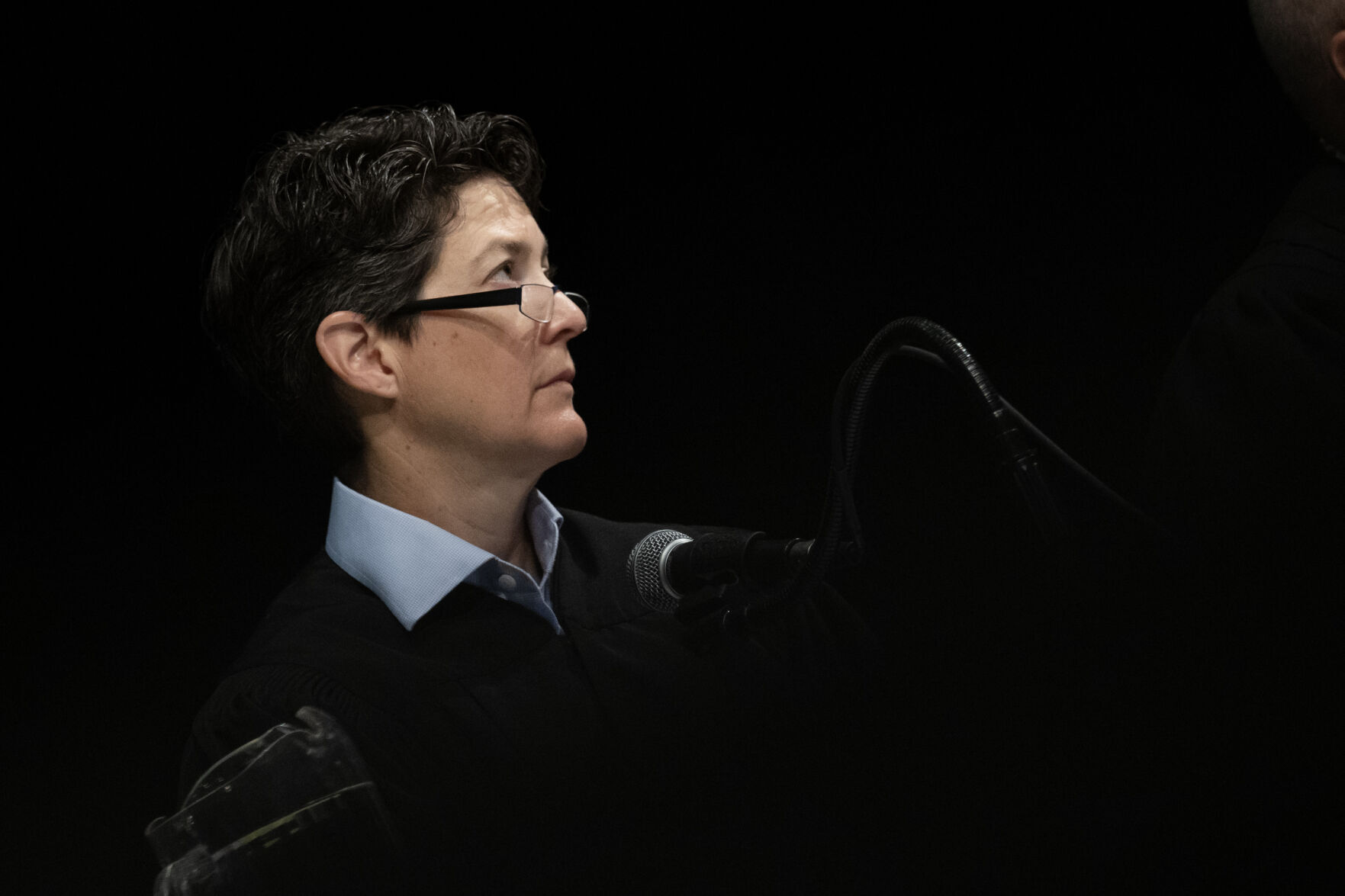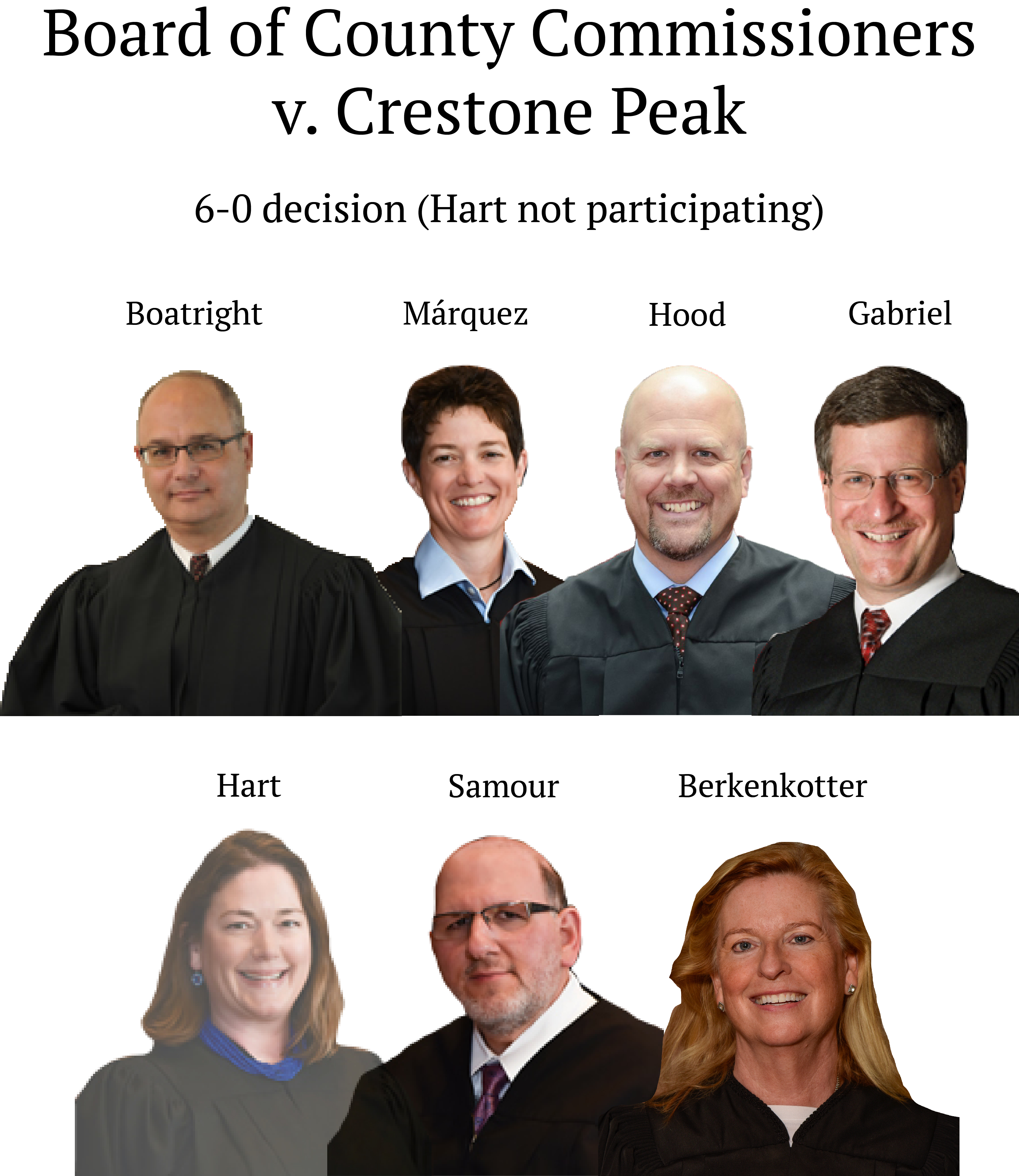Boulder County oil, gas leases not terminated after temporary maintenance pause, Supreme Court says

The Colorado Supreme Court walked back a ruling by the state’s second-highest court on Monday, holding that a pair of oil and gas leases in Boulder County did not terminate simply because the pipeline operator halted production for four months to make repairs.
The justices’ ruling had implications for extraction operations throughout the state, with Boulder County advocating for the court to require a well operator to actually produce oil or gas in order for a lease to remain valid. The Court of Appeals, on the other hand, believed wells need only be “capable of producing” oil and gas for a lease to continue.
The Supreme Court decided neither position was correct. Both attempts at setting a standard, wrote Justice Monica M. Márquez, would force courts to ignore the language of individual oil and gas leases.
“We decline to adopt any universal definition for ‘production’ in oil and gas leases in Colorado, but rather determine the parties’ meaning within the context of the lease,” she wrote in the Nov. 20 opinion.

The case between Boulder County and the current holder of the leases, Crestone Peak Resources Operating LLC, drew significant attention from outside groups. The Colorado Oil & Gas Association, representing the extraction industry, argued against a requirement that well operators keep drilling to maintain their leases – as suspending production may be necessary at times.
The Southern Ute Indian Tribe, which owns natural gas facilities, agreed there are legitimate reasons to halt extraction that should not trigger the permanent surrender of an oil or gas lease.
“The Tribe in its governmental capacity, and in order to protect wildlife within the Reservation, imposes seasonal limitations on the drilling of wells and well pad activities on portions of its lands,” wrote the tribe’s attorneys. “Under federal, state, and tribal laws, the discovery of archaeological resources or human remains may require a halt to activities that has temporary ripple effects across a local area and impedes lease operations.”
In the underlying case, Encana Oil & Gas (USA), Inc., now known as Ovintiv, temporarily halted its oil and gas extraction in 2014 for two areas of production in Boulder County while Anadarko Petroleum Corporation addressed pipeline maintenance. The repairs lasted 122 days.
Although operations continued as normal for years afterward, with payments being made to Boulder County, the government eventually filed suit seeking to declare the leases expired based on the 122-day pause. It pointed to language in each of the two leases terminating them whenever production ceases “from any cause” after 60 or 90 days. The county’s legal action appeared to be a response to the new leaseholder, Crestone, seeking to expand drilling in tension with the county’s conservation goals.

A three-judge panel of the Court of Appeals rejected Boulder County’s argument, finding that “production” under the terms of the lease meant “capable of production.” The lease only terminated if the wells dried up or were incapable of producing commercial oil and gas. With that understanding, wrote Judge Dennis A. Graham, the temporary maintenance shutdown in Boulder County did not qualify.
After oral arguments, but before the Supreme Court issued a decision, its counterpart in Oklahoma addressed a similar dispute. In February, the Oklahoma Supreme Court ruled that the “temporary interruption in profitable production” was not intended to trigger a complete end to an oil and gas lease.
Márquez, writing for the Colorado Supreme Court, agreed with that logic. She also worried about the incentive for oil and gas operators to continue drilling in order to protect their legal rights, even when a failure to pause would result in “economic and environmental waste.”
“To hold that a lessee must conduct additional drilling on property where a productive well already exists to avoid termination of their lease would risk initiating a surge of new drilling operations any time there is a pause,” Márquez elaborated.
Crestone referred requests for comment to the Colorado Oil & Gas Association, which described the ruling as fostering “responsible production” of mineral resources. Boulder County officials also praised the Supreme Court for reeling in the standard set by the Court of Appeals.
“This ruling gives us more clarity when we are evaluating the status of the county’s leases. The county’s legal team will continue to push for clear and coherent law around oil and gas,” said Commissioner Claire Levy.
Justice Melissa Hart did not participate in the case.
The case is Board of County Commissioners v. Crestone Peak Resources Operating LLC.













